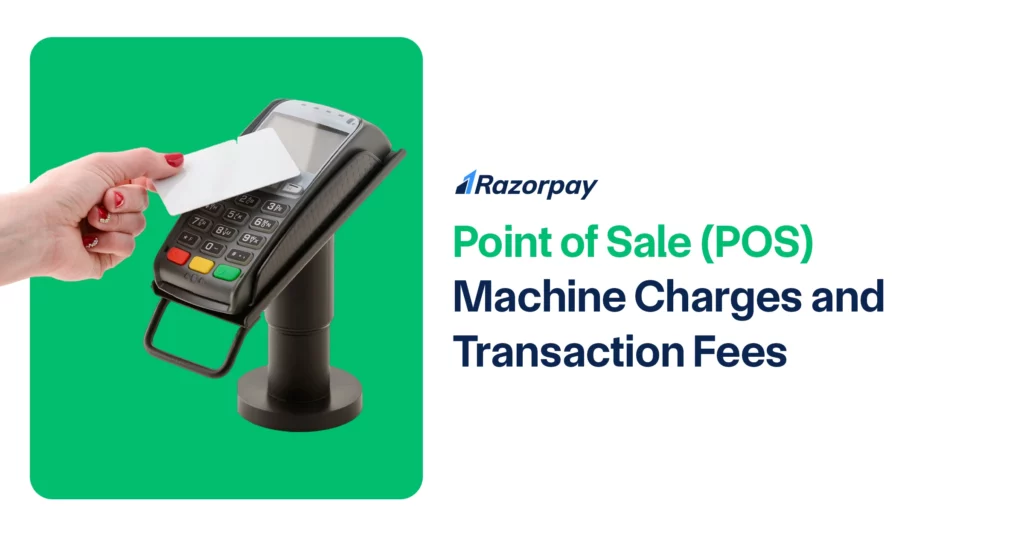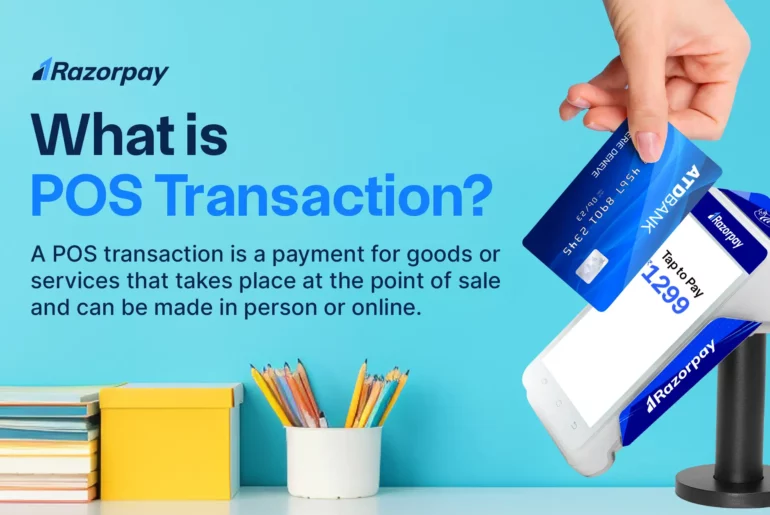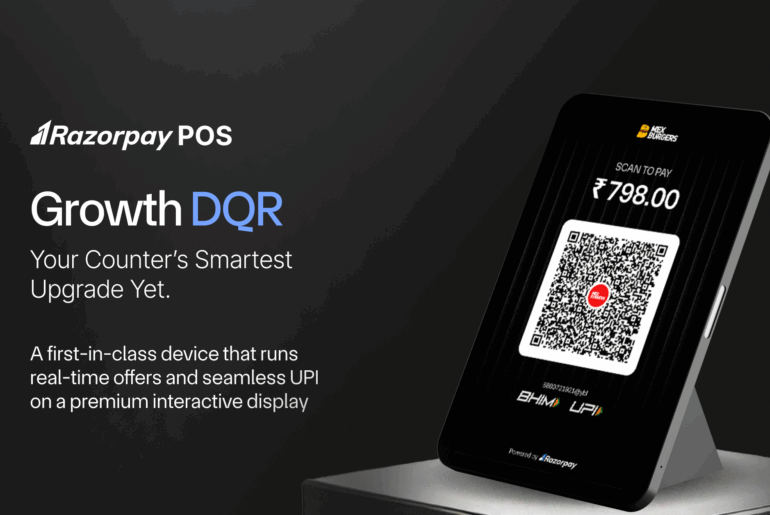In today’s retail environment, Point of Sale (POS) system are essential for businesses, facilitating smooth POS transactions and enhancing customer experience. Understanding the charges associated with POS machines – transaction fees, monthly costs, and more is crucial for managing costs effectively. This article will explore the different types of charges, helping you make informed decisions for your business.
Table of Contents
Key Takeaways
- POS machine costs usually come in 3 buckets: one-time installation/setup, monthly rental (if applicable), and per-transaction charges for card payments.
- For Razorpay POS monthly plans, the installation fee is ₹1000 (Android Smart POS and Android Smart Mini POS) and monthly rental is ₹425 / ₹325 respectively (mPOS has no installation/rental in the table).
- Credit card transaction charges vary by merchant category (examples listed: 1.30% for grocery/supermarket, 1.10% for categories like utility/government/education/fuel/insurance/transport, and 1.85% for others) and GST is extra.
- What changes your swipe charges: POS type (basic vs feature-rich), payment processor setup, transaction volume, contract length, debit vs credit mix, and card network.
- Merchants typically pay the swipe charges, and passing POS charges directly to customers isn’t allowed as per the guidelines referenced in the article.
What is a POS Machine?
A POS (Point of Sale) machine (also called a POS terminal or payment terminal) is the device used at a physical checkout counter to accept electronic payments and complete an in-person sale. It captures the payment details (tap, insert, swipe, or sometimes manual entry), sends the request for approval, and creates a transaction record for the merchant.
POS Machine Charges
POS Machine charges are different for different service providers, here we will discuss the Razorpay POS machine charges. Razorpay prides itself on offering transparent and competitive pricing for its POS machines. There are no hidden fees, and you’ll always know exactly what you’re paying for. To help you make informed decisions, let’s break down the key charges associated with Razorpay POS machines:
Razorpay POS Machine Charges: Monthly Plans
Charge Type |
POS Type |
||
Android Smart Pos |
Android Smart Mini POS |
mPOS |
|
Installation Charges |
Rs. 1000 | Rs. 1000 | NA |
Monthly Rental |
Rs. 425 | Rs. 325 | NA |
Related Read: What Is a Smart Terminal?
Transaction Charges for Credit Cards*GST is extra |
|||
Android Smart POS |
Android Smart Mini POS |
mPOS |
|
| Grocery/Supermarket | 1.30% | 1.30% | 1.30% |
| Utility, Govt., Education, Fuel, Insurance, Transport | 1.10% | 1.10% | 1.10% |
| Others | 1.85% | 1.85% | 1.85% |
Razorpay POS Machine Charges: Lifetime Plans
Charge Type |
POS Type |
||
Android Smart POS |
Android Smart Mini POS |
mPOS |
|
| Set-up/Installation fees | Rs. 7799 | Rs. 5699 | Rs. 2000 |
| Monthly rental | Zero | Zero | Zero |
Transaction Charges for Credit Cards*GST is extra |
|||
Android Smart POS |
Android Smart Mini POS |
mPOS |
|
| Grocery/Supermarket | 1.30% | 1.30% | 1.30% |
| Utility, Govt., Education, Fuel, Insurance, Transport | 1.10% | 1.10% | 1.10% |
| Others | 1.85% | 1.85% | 1.85% |
Head over to Razorpay POS to learn more.
Factors Affecting POS Machine Transaction Fees
Understanding the factors influencing swipe machine charges empowers you to make informed decisions and potentially reduce your costs. Here’s a breakdown of the key players:
1. Type of POS System:
Basic vs. Feature-Rich Systems: Basic POS terminals with limited functionalities might have lower transaction fees. However, feature-rich systems (like android smart POS) offering advanced features like inventory management or customer loyalty programs might have slightly higher fees. This reflects the additional value provided.
2. Payment Processor:
Different Players: POS providers often partner with payment processors to handle the actual transaction authorization and settlement. These processors may have varying fee structures. Research your chosen POS provider’s partnered processor to understand their specific fees.
3. Transaction Volume:
High Volume, Lower Rates: Businesses processing a high volume of transactions are more valuable clients for POS providers. This can translate to lower negotiated transaction fees compared to businesses with lower volume.
4. Contract Length:
Stability for Lower Rates: Longer contracts offer predictable revenue streams for POS providers. This can incentivize them to offer lower transaction fees compared to month-to-month options. However, weigh the potential cost savings against the flexibility of a shorter contract.
5. Transaction Type:
Debit vs. Credit: Debit card transactions typically have lower fees compared to credit card transactions. This reflects the different risk profiles associated with each payment method. Encouraging customers to use debit cards can potentially reduce your overall transaction costs.
6. Card Network:
Visa, Mastercard, etc.: Different card networks (e.g., Visa, Mastercard) may have slightly varying processing fees. These fees are typically factored into the overall transaction fee you pay to your POS provider.
Related Read: What is an EPOS System: Types, Components and How Does it Work?
Frequently Asked Questions
1. What are POS fees?
POS fees typically include transaction fees, potential monthly rentals, and statement charges.
2. What affects transaction fees?
Transaction type (debit vs. credit), volume, and your chosen provider all influence the transaction fees.
3. Who is responsible for paying the swipe charges?
Typically, merchants or businesses are responsible for paying the swipe charges incurred when customers use credit cards for transactions at POS machines. These charges are part of the transaction processing fees that merchants pay to their payment service providers.
4. Are POS machine charges mandatory for businesses?
Yes, POS machine charges are mandatory as they cover the cost of transaction processing, maintenance, and other related services provided by the service provider.
5. Can businesses pass on the POS machine charges to customers?
According to RBI guidelines, passing on these charges to customers is not permissible under the bilateral agreements between acquiring banks and merchants. Therefore, merchants are not allowed to claim these expenses from customers.
6. What are the benefits of using a POS machine despite the charges?
Streamlined transactions, improved accuracy, enhanced customer experience, better inventory management, and detailed reporting.
7. How are customers charged when swiping a credit card?
Customers are not directly charged a fee when swiping their credit card. However, the merchant pays a transaction fee to the service provider, which can be reflected in the pricing of goods and services.
8. Do all POS machines have the same charges?
No, charges vary by service provider, transaction volume, and specific services offered.
9. Is there a difference in charges for online and offline POS transactions?
Yes, online POS transactions can have different fees compared to in-store POS transactions, depending on the provider.
10. Do POS machine charges include GST?
Yes, POS machine charges typically include GST, but it’s advisable to check with the service provider.



